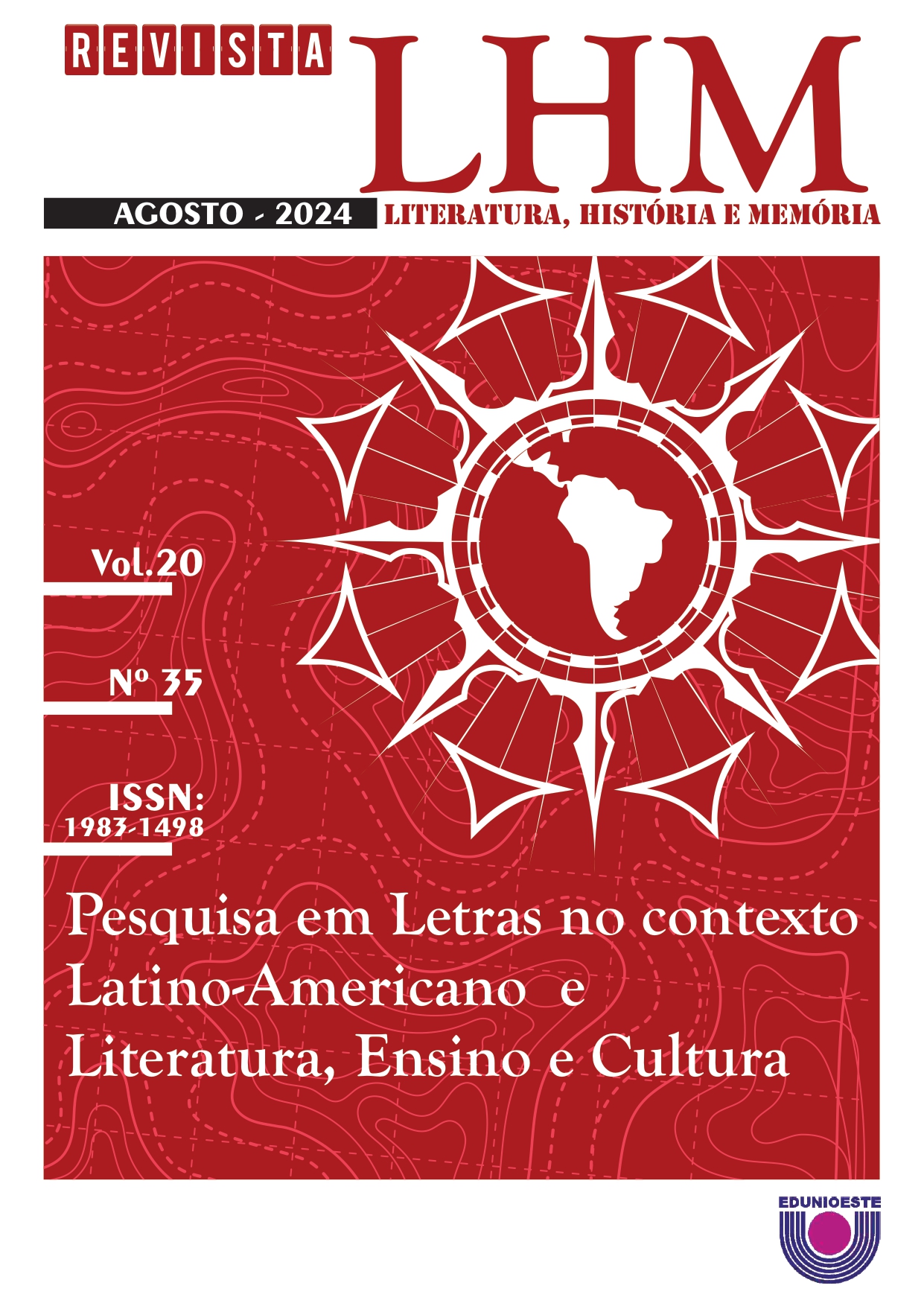Oralitura e umbanda na "Canção de Siruiz” (Grande Sertão: Veredas)
DOI:
https://doi.org/10.48075/rlhm.v20i35.31640Resumo
O presente estudo percorre o romance Grande Sertão: Veredas (1956), de João Guimarães Rosa (1908-1967), buscando, como ponto de partida, traços evidentes de oralitura, categoria conceitual que remete às expressões verbo-acústicas de natureza poética, para além do espaço circunscrito ao texto impresso. O termo foi proposto na década de 1960 por Piu Zirimu, em contraponto ao etnocêntrico conceito literário de “literatura oral” ou “oralidade”. O romance rosiano abre espaço a variadas manifestações da oralitura: ditados, cantigas, lendas, mitos, contos, cantos, adivinhas, causos, saudações votivas, interjeições emotivas, preces, cortejos votivos narrativizados etc. Procuramos percorrer a canção de Siruiz, ampliada em rapsódia pelo próprio bardo Riobaldo, de forma a evidenciar o encontro de múltiplas culturas e espiritualidades em suas variadas manifestações diastráticas, diacrônicas e diatópicas – tal qual a linguagem utilizada pelo romancista, que afirma se dedicar ao preparo de um “omelete ecumênico”. Assim, o presente ensaio busca convergências entre oralitura e umbanda na obra do polígrafo escritor mineiro.
Downloads
Publicado
Como Citar
Edição
Seção
Licença

Este trabalho está licenciado sob uma licença Creative Commons Attribution-NonCommercial-ShareAlike 4.0 International License.
Aviso de Direito Autoral Creative Commons
Política para Periódicos de Acesso Livre
Autores que publicam nesta revista concordam com os seguintes termos:
1. Autores mantém os direitos autorais e concedem à revista o direito de primeira publicação, com o trabalho simultaneamente licenciado sob a Licença Creative Commons Attribution que permite o compartilhamento do trabalho com reconhecimento da autoria e publicação inicial nesta revista.2. Autores têm autorização para assumir contratos adicionais separadamente, para distribuição não-exclusiva da versão do trabalho publicada nesta revista (ex.: publicar em repositório institucional ou como capítulo de livro), com reconhecimento de autoria e publicação inicial nesta revista.
3. Autores têm permissão e são estimulados a publicar e distribuir seu trabalho online (ex.: em repositórios institucionais ou na sua página pessoal) a qualquer ponto antes ou durante o processo editorial, já que isso pode gerar alterações produtivas, bem como aumentar o impacto e a citação do trabalho publicado (Veja O Efeito do Acesso Livre).
Licença Creative Commons
Esta obra está licenciada com uma Licença Creative Commons Atribuição-NãoComercial-CompartilhaIgual 4.0 Internacional, o que permite compartilhar, copiar, distribuir, exibir, reproduzir, a totalidade ou partes desde que não tenha objetivo comercial e sejam citados os autores e a fonte.


